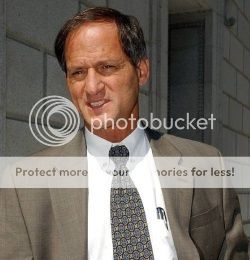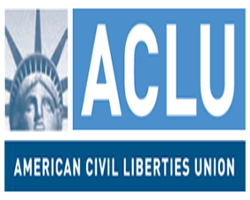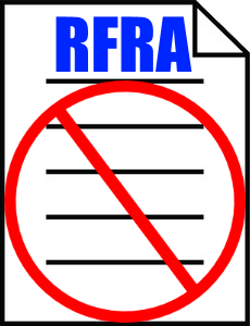In this episode we talk to Alison Gill, Vice President, Legal and Policy with American Atheists, about Christian Nationalists using the 1st amendment to discriminate and how the Do No Harm Act could help restore real religious freedom.
Tag: Religious Freedom Restoration Act
The next act of religious conservatives against same-sex marriage, after the US Supreme Court decision, included claiming ‘religious freedom’ to justify continued opposition to it and trying to enact laws allowing them to ignore the court decision. Yet when people like me bring up the use of ‘religious freedom’ also being used to oppose the civil rights struggle for blacks back in the 60s, these same ‘Doctors of Theology’ claim amnesia and say the Bible doesn’t support racism. Their amnesia is at least disingenuous if not dishonest.

Michael Newdow
Michael Newdow has a history of lawsuits to support church and state separation. After addressing the phrase ‘Under God’ in the Pledge of Allegiance, Newdow recently filed a lawsuit, in Ohio, to have the US Motto ‘In God We Trust’ removed from our currency. The difference this time is he plans on using the same argument Hobby Lobby used to get out of the contraceptive mandate of the Affordable Care Act. Newdow’s strategy is very interesting and looks promising.
In previous cases against the ‘Under God’ phrase and the US motto he has argued about it being a harm to non-believers to be exposed to the obviously religious phrases.

During the recent firestorm over state Religious Freedom Restoration Acts (RFRA) like those passed by Indiana and the use of them to discriminate against LGBT people, one of my conservative friends pointed out many liberals and the ACLU supported the federal RFRA passed in 1993. He implied they were being hypocrites. Late last week the ACLU formally repudiated its support of the RFRA.
The ACLU provided some of the same reasons to remove their support of the RFRA that has been mentioned in previous posts about this issue:

The Puritans
In the national debate over religious freedom and Religious Freedom Restoration Acts passed in some states, it’s important to define our terms. Religious freedom means one thing to religious conservatives and another thing for progressives who support church and state separation. I don’t know if it’s good to know the debate has been going on since the founding of this country.
Sheila Suess Kennedy at the Indianapolis Business Journal had a post about the history of religious freedom:

Last month, as co-chair of the Secular Coalition for Ohio, I had a letter to the editor printed in the Columbus Dispatch about the firestorm over the attempt by Indiana to discriminate against LGBTQ people by using a Religious Freedom Restoration Act. Someone who opposed my letter responded to that letter by sending a typed letter to my house. Below is the letter in question and my response.
It should be noted that my response was mailed to the address on the envelope but was returned back to me, unopened – addressee unknown. It really doesn’t help your cause if you use a fake address or refuse to be responded to using the same method you used to rant at me.